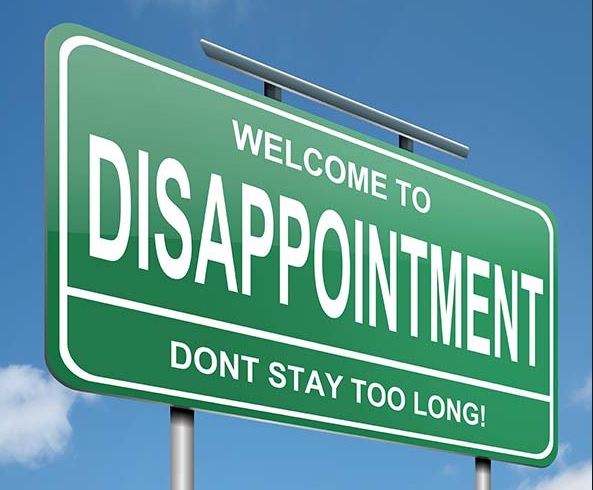This Just Got Real … and by “Real” I mean “Real Bad”
Steak House Index (SHI) Update – October 12, 2016
October 12, 2016The Steak House Index (SHI) Update – 10/19/2016
October 19, 2016Things aren’t going well for our UK friends. Economic theory is theory no longer. It is now a very unpleasant reality.
Why You Should Care: Nothing happens in a vacuum today. The world’s social, economic and financial systems are all interconnected. Every change, every move has repercussions far beyond the original intent.
Taking Action: Keep this in mind. Understand all the implications of your choices. For example, before you vote on any issue, make sure you are very well informed. Pay close attention to the facts … not what you get from the media. A ‘yes’ vote may not yield the result you were expecting.
The BLOG: I suspect folks in the UK may be wishing for a ‘do-over.’
The referendum known as ‘Brexit‘ was badly worded. Unfortunately, as they’re now discovering, the voters were seriously misguided and misled. And the outcome has now come home to roost.
The UK ballot asked: “Should the United Kingdom remain a member of the European Union or leave the European Union?” On its face, a simple question, right? Wrong. The question neglected to help voters understand the economic implications of the vote.
The question should have asked: “Would you like to pay A LOT MORE for everything you buy that isn’t made here in the UK … or would you like prices to remain unchanged?
Because if they asked THAT question, I suspect the voting outcome might have been different….
Maybe not. Maybe, in the minds of the voters, the Brexit vote was entirely about controlling the future of UK immigration policy. Regardless of the economic and financial cost. But even if this was the case, the downstream implications to every UK citizen should have been made clear. They were not.
On the day of the Brexit vote, the pound equaled $1.49. Today, about $1.22. That’s a 23% decline:
UK supermarkets import many different food and consumer products. UK consumers pay for those products in pounds. And the pound is now worth about 20% less against the USD and many other currencies, including the Euro. So the manufacturer, once paid, converts UK pounds into their local currency. Effectively receiving 20% less for their products. With already thin margins, no manufacturer can sustain this arrangement long. Price increases are the only solution.
And that’s what happened this week.
Unilever, one of the largest global consumer products companies, is a large exporter to the UK. They manufacturer all over the world. From their website:
“By the end of 2014 our global factory network (comprised) over 240 factories across 67 countries …. “
Which means they pay manufacturing costs in the local currency. Usually not pounds.
“The price increases have landed….” said Unilever finance chief Graeme Pitkethly. Apparently about 10% on average. And likely to increase … if the UK pounds remains at its current exchange rate. Which it probably will.
The UK is now importing inflation on a grand scale. The voters should have been warned. And this is just the beginning … if the pound continues to depreciate, it’s going to get a lot worse.
I was speaking to the CEO of another manufacturing firm earlier this week. Until recently, 25% of their product was sold in Europe. Now, the number is 3%. Why?
The strong US dollar. His comment: “When the Euro was about $1.35, about 1/4 of our sales were in the European Common Market. Now that the Euro is about $1.12, our European sales are almost nothing. Effectively, our product is 20% more expensive than it used to be.”
Imagine you are a US manufacturer. The ‘stronger‘ the USD becomes against other currencies, the more expensive US product becomes for the overseas buyer. Meaning, the buyer, if possible, will substitute another product to avoid the price increase. Here, it’s easy to see economic theory become reality once again.
And reality it is: If the FED raises interest rates – say, in December – while the rest of the developed world continues to languish, rest assured the USD will gain more strength. By raising interest rates, the FED will effectively make our exports more expensive to overseas buyers, thereby reducing sales, driving our GDP even lower. For the US – at the present time – the FED raising rates is inherently deflationary…and bad for our economy.
Perhaps this fact should be on the November ballot. 🙂
- Terry Liebman





2 Comments
Very nice post. I simply stumbled upon your blog and wanted to mention that I’ve really loved browsing your weblog posts. In any case I will be subscribing for your rss feed and I am hoping you write once more very soon!
[…] No, no… not here in the US. Across the pond — in the UK. Just as I predicted in my October 15, 2016 SHI update. Take a look: https://www.steakhouseindex.com/this-just-got-real-and-by-real-i-mean-real-bad/ […]